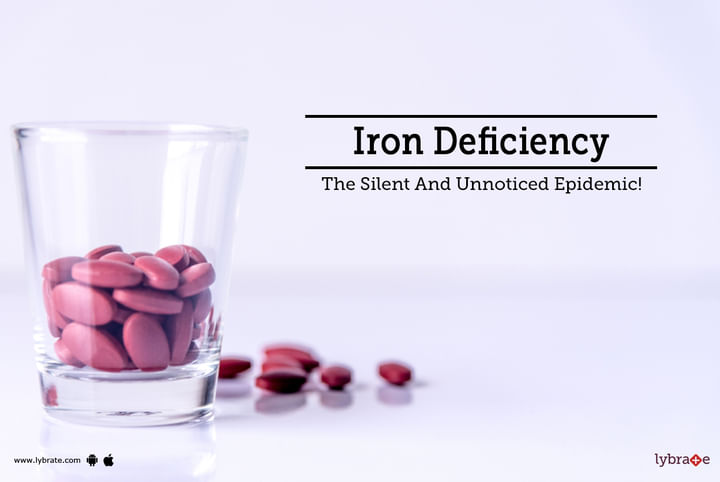Iron Deficiency - The Silent And Unnoticed Epidemic!
Iron is a vital mineral for the well-being of the body. It forms a major component of haemoglobin present in red blood cells, which is responsible for transport oxygen throughout the body. Iron deficiency is most common among menstruating and pregnant women. Almost 30% of menstruating women become iron-deficient from the monthly blood loss, and more than 42% of the pregnant population suffers from major iron deficiency.
What is dietary iron?
There are two types of dietary iron:
- Heme iron- This form of iron is easily absorbed by the body and is only found in animal protein like red meat.
- Non-heme iron- Although this type of iron can be sourced from both animal and plant foods, it is not absorbed as easily by the body.
What happens due to Iron Deficiency?
Iron deficiency causes anaemia where the red blood cells become deficient in haemoglobin and cannot carry sufficient volumes of oxygen.
Its main symptoms are-
- Generalized tiredness
- Weakness
- Shortness of breath
- Paleness of skin
- Deteriorating immune system
- Impaired brain function
What are the Sources of Iron?
Including these rich sources of iron can help you battle iron deficiency-
- Red meat- In moderate amounts, red meat is one of the richest sources of iron and has other health benefits contrary to popular belief.
- Liver- Meat liver is another rich source of iron and 80 grams of liver in the diet can alone fulfill half the daily iron requirements of the body.
- Shellfish- Including seafood with shells such as clams, mussels, and oysters also form an excellent way to include heme iron in the diet.
- Beans- Kidney beans are moderately rich in their iron content.
- Seeds- Including edible seeds like pumpkin, squash, and sesame seeds are a good way to include iron in the diet.
- Dark green vegetables- Green vegetables like spinach, broccoli, and kale are rich dietary iron of the non-heme variety.
- Vitamin C is an important factor to ensure the proper absorption of iron in the body. Therefore, one must ensure to include rich sources of Vitamin C in the diet to overcome and prevent iron deficiency. Include foods that are rich in Vitamin C like oranges and other citrus fruits, bell peppers to maximize the iron absorptionin the body.
Iron deficiency is among the most common nutrient deficiencies and affects more than 25% of people in the world. Because of rich deposits of heme iron in animal-based food products, it is more common among vegetarians and vegans.



+1.svg)
